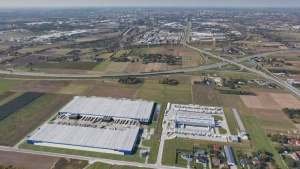
DLA Piper has launched a new "proptech" practice for the real estate and construction sector and new technologies. The firm's Polish proptech team is led by Poland Co-Managing Partner Jacek Gizinski, Head of Real Estate, and Ewa Kurowska-Tober, Head of Intellectual Property and New Technologies.
DLA Piper reports that property and technology, i.e. the combination of commercial real estate/developer sector with new technologies, is a new version of a huge business area, which brings with it a number of challenges and legal issues.
"The practice of proptech is a natural extension of our law firm's specialization resulting from the work for clients representing both the real estate sector and technology companies," commented Gizinski. "Properties, in particular commercial ones, are already managed using new technologies as a standard; their digital use (e.g. identification of entrance through gates via smartphone application) is becoming common for tenants in the highest class buildings. Technology also helps to effectively manage energy consumption in buildings, which generates savings for tenants and helps to protect the environment. Office property users have a variety of amenities at their disposal, such as car-sharing or bicycles, which are ordered via mobile applications. Finally, for institutional clients, solutions based on algorithms and artificial intelligence are created, making it easier for them to manage datasets, e.g. covering thousands of lease agreements. These are just a few examples of the presence of technology in real estate."
"New technologies are being taken by storm by other industries which until now seemed less receptive to this type of investment," added Kurowska-Tober. "It is all the more interesting to participate in client projects, which result from their development plans in the real estate and construction sectors. From the legal point of view we are dealing with many interesting topics also for practicing lawyers. Licence agreements, intellectual property protection, personal data protection are classic areas of our expertise. An interesting challenge is also the protection of business concepts and ideas, which more and more often require non-standard legal solutions. If we add to this the nature of the digital economy and completely new business models, there are issues of a disruptive nature."



